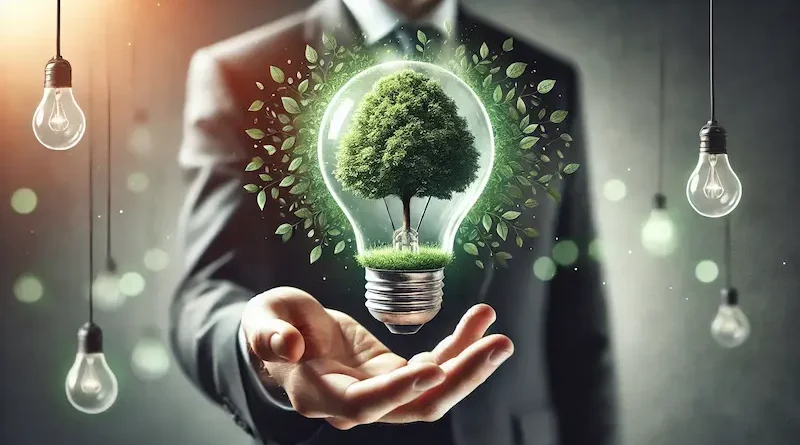Greener Alternatives: Sustainable Solutions for Everyday Living
In today’s world of rapid technological advancements and increased environmental awareness, sustainability is not merely a personal preference but a global imperative. The growing threats of climate change and ecological degradation require immediate action to safeguard our planet for future generations. Enter the vanguard of eco-friendliness, San Francisco real estate experts Applegarth + Warrin, who implement cutting-edge strategies to advance sustainable living standards and inspire eco-friendly communities. It’s crucial to understand how our daily activities contribute to sustainability and how small changes can culminate in significant impacts on environmental conservation.
Adapting sustainable solutions is a multifaceted endeavor that yields enormous benefits beyond environmental preservation. These practices drive economic efficiency by conserving resources and reducing waste, leading to considerable cost savings over time. Furthermore, sustainability enhances social well-being, ensuring healthier communities that can thrive harmoniously with nature.
The Modern Push for Sustainability
The urgency to adopt robust, sustainable practices has reached new heights as the impacts of climate change become increasingly tangible. From erratic weather patterns to dwindling natural resources, the consequences of inaction are profound. Governments, corporations, and individuals recognize that sustainability is critical to future prosperity. The push for sustainable practices extends beyond environmental concerns to economic growth and social equity. Many forward-thinking businesses understand that a commitment to sustainability attracts eco-conscious consumers and reaps long-term benefits. The shift towards sustainable practices is a testament to the desire for a healthier planet and an economically viable future. By embracing sustainable practices and incentivizing greener choices, organizations like San Francisco real estate experts Applegarth + Warrin are leading the charge in creating a domino effect that encourages the widespread adoption of sustainable living.
What Makes a Product Sustainable?
At its core, a sustainable product mitigates environmental harm during its entire lifecycle—from pre-production to end-of-life management. These products often incorporate renewable resources, ethical labor practices, and innovative designs that facilitate reuse and recycling, reducing landfill waste. A profound shift is underway as businesses embrace sustainability as a standard operating practice, driven by consumer demand for transparency and accountability. For instance, some industries have adopted innovative solutions that set new benchmarks for sustainable practices, demonstrating that environmentally friendly products are viable and highly desirable.
Everyday Practices for a Sustainable Lifestyle
- Reduce, Reuse, Recycle: This fundamental resource management principle helps minimize waste and conserve resources. Individuals can significantly decrease their ecological footprints by reducing reliance on single-use plastics and choosing reusable alternatives.
- Support Local: Buying from local farmers and artisans strengthens local economies and reduces carbon emissions associated with long-distance transportation.
- Conserve Water and Energy: Simple actions like installing water-efficient fixtures, using energy-saving appliances, and repairing leaks can dramatically reduce resource consumption and lead to substantial long-term savings.
Eco-Friendly Innovations Leading the Charge
The importance of technology in advancing sustainability cannot be exaggerated. Eco-friendly innovations such as solar panels, wind turbines, and energy-efficient appliances reshape how energy is produced and consumed. As awareness spreads, more communities and industries turn to renewable energy technologies significantly reducing carbon footprints. The surge in renewable energy advancements is a powerful testament to the potential of technology in crafting a sustainable future. Such innovations are making sustainability more achievable, cost-effective, and accessible for individuals and businesses alike.
Significance of Green Certification
Green certifications are vital for eco-conscious consumers, ensuring products meet stringent environmental standards. These certifications assess various criteria, including resource sourcing, manufacturing processes, and end-of-life recycling capabilities. Consumers can make informed decisions that align with their environmental values by choosing products with recognized certifications. In this way, certifications are crucial in steering producers and consumers toward more sustainable practices, ultimately driving market demand for eco-friendly products.
Addressing Common Myths
One of the prevailing myths about sustainability is that it comes with a prohibitive price tag. While initial investments in sustainable products or infrastructure might be higher, they often lead to substantial long-term savings. Sustainable practices offer economic advantages that extend beyond immediate cost savings by reducing pollution, conserving resources, and minimizing waste. In essence, sustainability is a moral and environmental obligation and a financially prudent choice in today’s ever-evolving landscape.
The Community’s Role in Fostering Sustainability
Communities wield significant power in driving sustainability efforts through education, advocacy, and grassroots movements. By raising awareness and encouraging sustainable practices, communities can foster a culture of environmental stewardship and accountability. Community-led initiatives are potent catalysts for legislative change, enabling governments to implement policies supporting sustainable development. Empowering individuals to take eco-conscious actions collectively creates a ripple effect, cultivating a sustainable mindset that promotes the health and longevity of both people and the planet.
Visit the rest of the site Business Insiderrs for more interesting and useful articles. Thank you!

